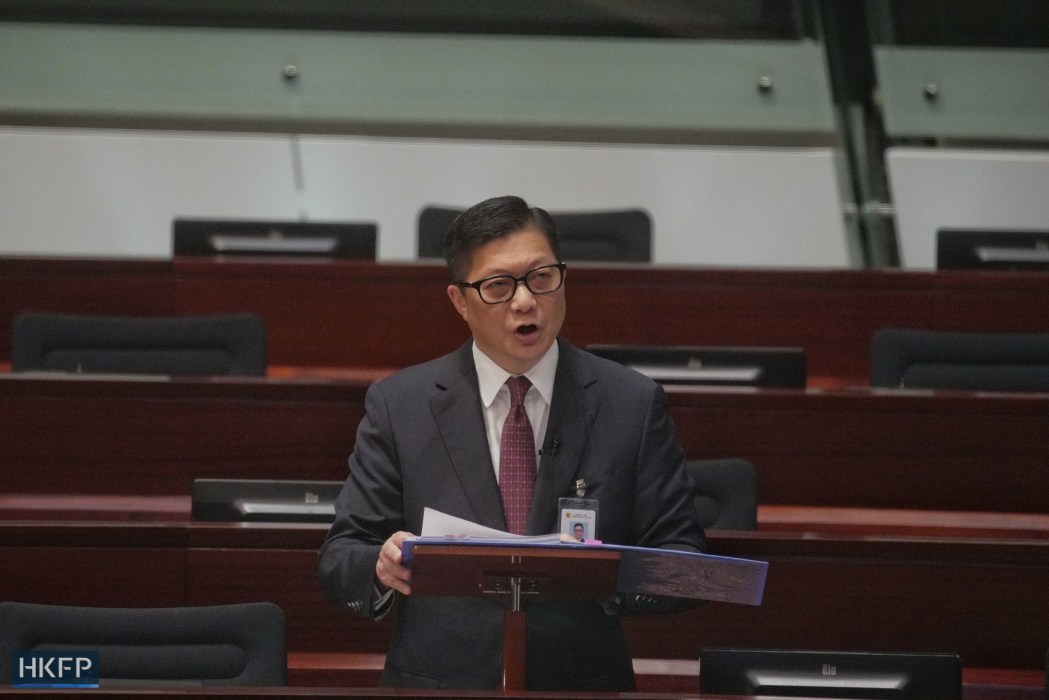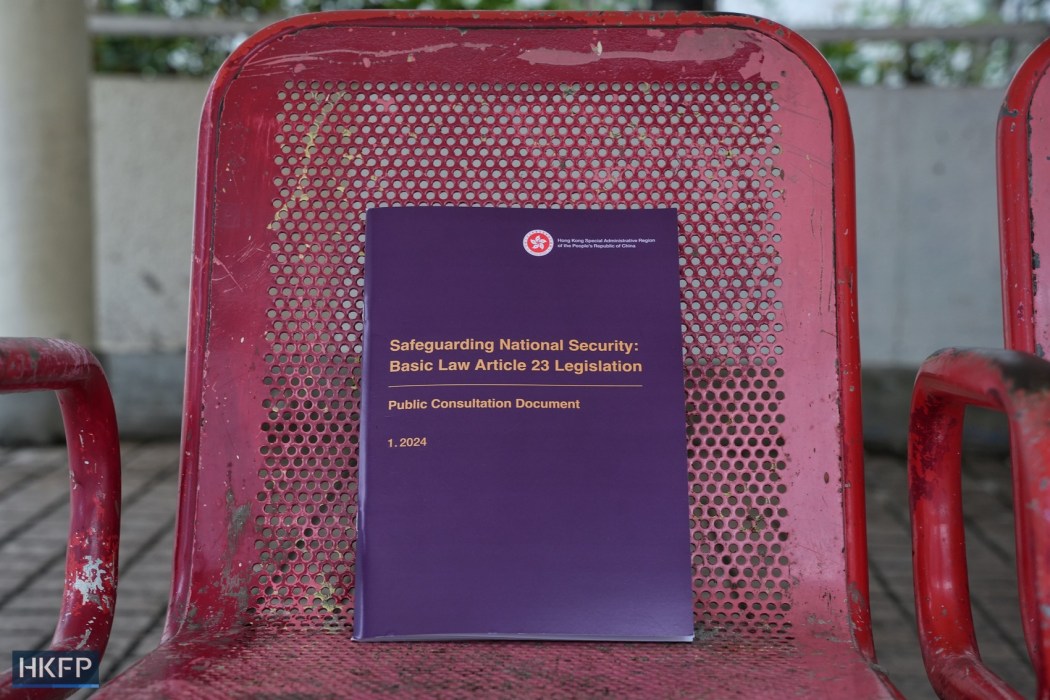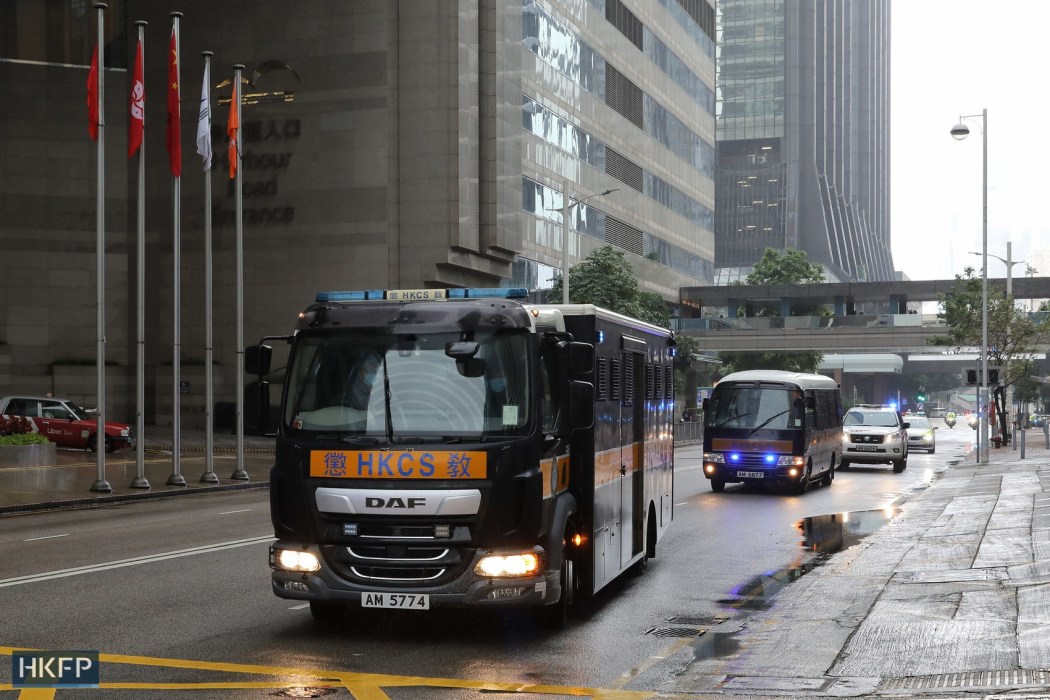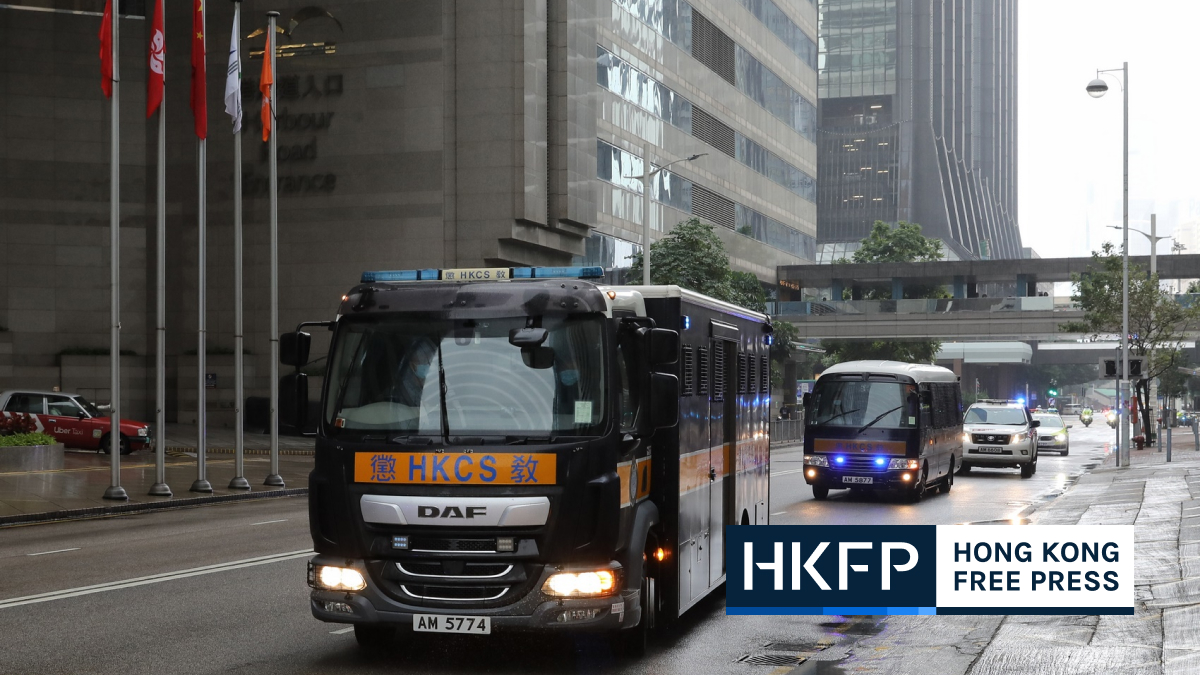Those who have been arrested under a proposed security law and granted bail, and those who have refused bail and been discharged by police, may be subject to restrictions on their movement, security chief Chris Tang has said.

According to the draft of the Safeguarding National Security Bill, suspects accused of endangering national security may be subject to a series of new restrictions, including extending their pre-charge detention time, limiting their access to lawyers, and issuing a movement restriction order for those on bail.
According to the bill, those restrictions would be granted by the courts upon police application. A movement restriction order would be valid for three months, with the possibility of extending it for another month, and would require a suspect to live at a specified address and give police the identities of anyone they live with.
Tang said in the Legislative Council (LegCo) on Monday, as lawmakers discussed the draft bill, that such measures would serve as “combos” to prevent suspects from leaving Hong Kong.

Tang added that anyone who violated the movement restriction order would face a maximum penalty of one year in prison.
Kitson Yang, a pro-establishment lawmaker, asked in LegCo on Monday whether authorities would consider introducing electronic ankle monitors for national security suspects. Tang said the measure would not be adopted.
“Taking into account Hong Kong’s situation and human rights issues, we have not considered introducing any electronic devices or electronic ankle monitors [for those under arrest in national security cases],” Tang said in Cantonese.

Asked whether the new legislation would empower authorities to confiscate arrestees’ passports, Tang said the Beijing-imposed national security law already authorised police to take the passports of people on bail.
Other new powers
In addition, the draft bill outlines giving authorities the power to cancel the Hong Kong passports of security law “absconders” and ban providing them with financial support.
It also proposes amending the city’s prison laws to raise the threshold for national security prisoners to apply for early release.

If the draft bill passes Hong Kong’s opposition-free legislature, the amendment would apply “whether the sentence of the prisoner… was imposed before, on or after the commencement of” the change in law.
Authorities have been working to swiftly enact the homegrown security law. The bill was introduced last Friday, just nine days after the end of a one-month public consultation period.
Beginning on Friday, the Bills Committee on Safeguarding National Security Bill has held 28-hours worth of meetings to review the draft bill, with special sessions held on Saturday and Sunday. Meetings will continue on Tuesday.
Support HKFP | Policies & Ethics | Error/typo? | Contact Us | Newsletter | Transparency & Annual Report | Apps
Help safeguard press freedom & keep HKFP free for all readers by supporting our team
























